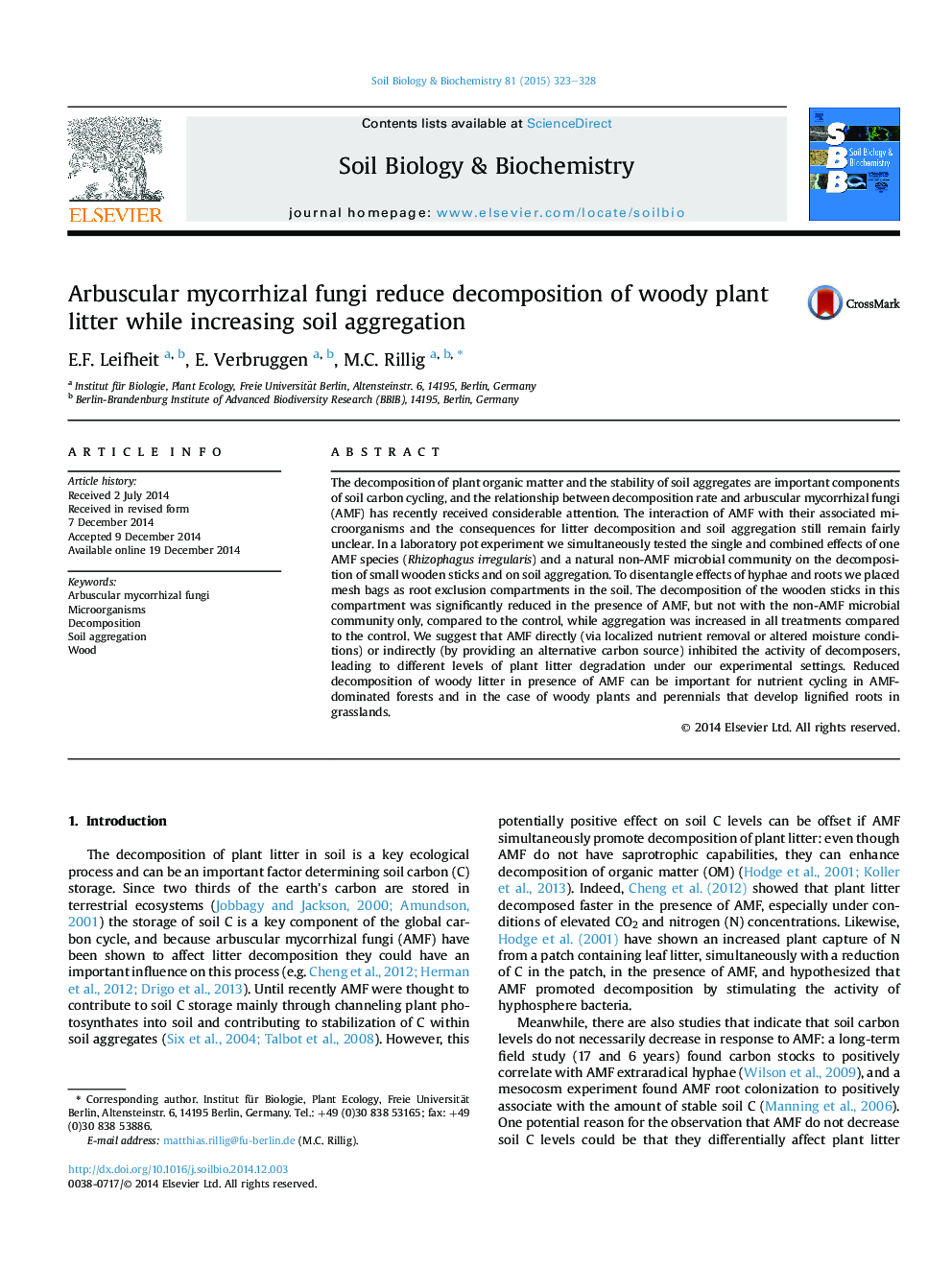| Article ID | Journal | Published Year | Pages | File Type |
|---|---|---|---|---|
| 2024445 | Soil Biology and Biochemistry | 2015 | 6 Pages |
•AMF slowed decomposition of woody plant litter.•Reduced decomposition was independent of the presence of other microbes.•AMF and soil microbial community increased soil aggregation.•AMF and soil microbes did not act synergistically in soil aggregation.
The decomposition of plant organic matter and the stability of soil aggregates are important components of soil carbon cycling, and the relationship between decomposition rate and arbuscular mycorrhizal fungi (AMF) has recently received considerable attention. The interaction of AMF with their associated microorganisms and the consequences for litter decomposition and soil aggregation still remain fairly unclear. In a laboratory pot experiment we simultaneously tested the single and combined effects of one AMF species (Rhizophagus irregularis) and a natural non-AMF microbial community on the decomposition of small wooden sticks and on soil aggregation. To disentangle effects of hyphae and roots we placed mesh bags as root exclusion compartments in the soil. The decomposition of the wooden sticks in this compartment was significantly reduced in the presence of AMF, but not with the non-AMF microbial community only, compared to the control, while aggregation was increased in all treatments compared to the control. We suggest that AMF directly (via localized nutrient removal or altered moisture conditions) or indirectly (by providing an alternative carbon source) inhibited the activity of decomposers, leading to different levels of plant litter degradation under our experimental settings. Reduced decomposition of woody litter in presence of AMF can be important for nutrient cycling in AMF-dominated forests and in the case of woody plants and perennials that develop lignified roots in grasslands.
